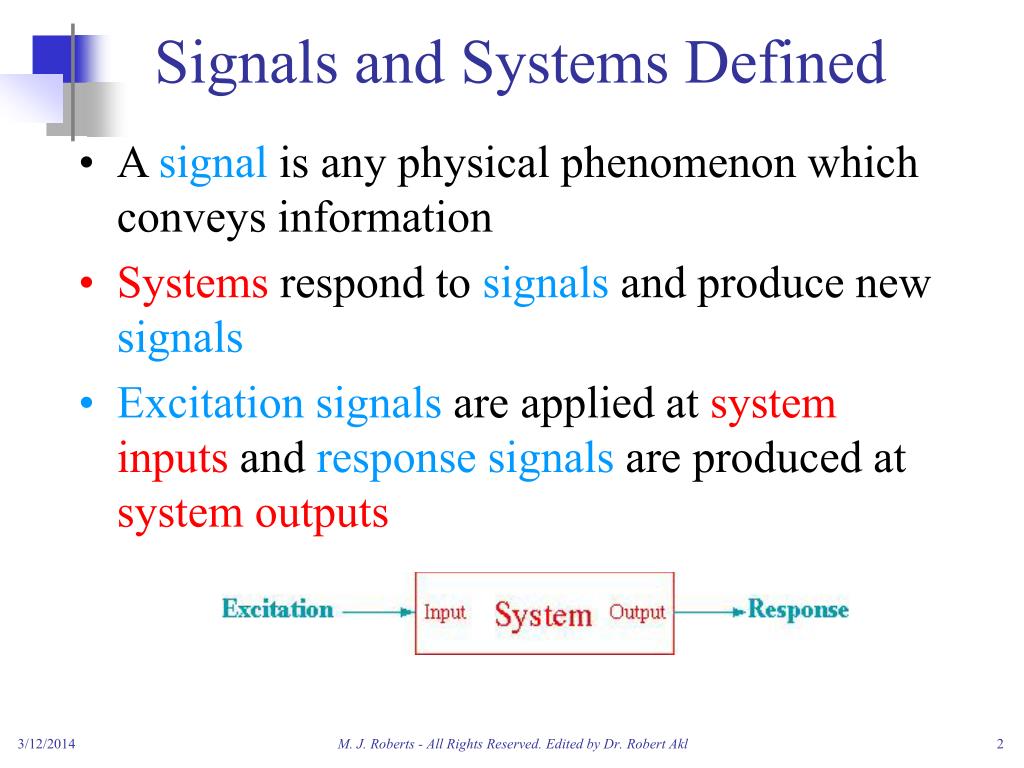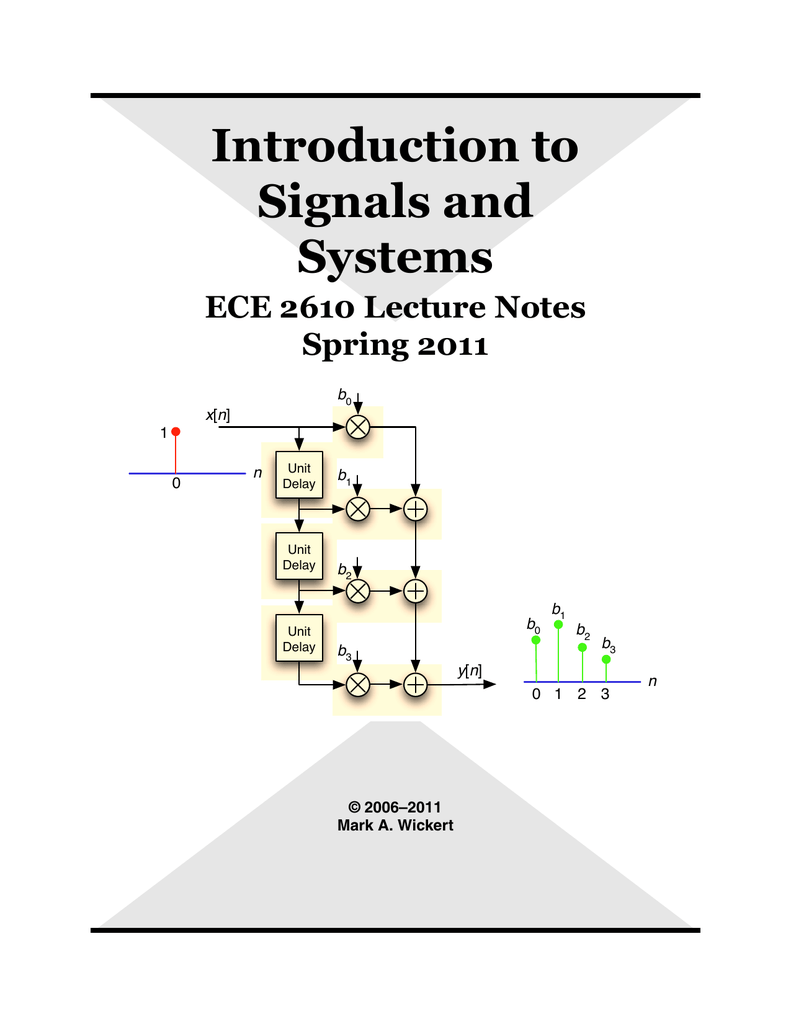Signals And Systems Course
Signals And Systems Course - Difference between signal and dc. Web this course focuses on analyzing signals (sound, voltage, communication transmissions, pressure, images, etc.) and the systems that act on them (circuits, physical echos, mechanical dynamics, modulation, etc.). Transformation of the independent variable of a signal (reflection, time shifts, and scaling); Web this course covers the fundamentals of signals and systems. Web learn signals & systems or improve your skills online today. Web signals and systems covers analog and digital signal processing, ideas at the heart of modern communication and measurement. Linear, dt, lti and ct systems. Web this course will equip you to deal with these tasks efficiently by learning the basic mathematical framework of signals and systems. Web this course applies mathematical analysis tools to biological signals and systems. Circuit analysis via laplace transform. Signal and system representations and analysis tools in both continuous time and discrete time are studied. Web in this course you will examine signal and systems analysis in continuous and discrete time. Web signals & systems: Web this course will provide students with foundational knowledge in signals and systems essential for graduate study in electrical and computer engineering, and other. This course is divided into two parts. Of course, this is an abstraction of the processing of a signal. Web learn signals & systems or improve your skills online today. Web here, we show results of the first tipping event in the community earth system model, including the large climate impacts of the collapse. Time and frequency are related by. Web this course will equip you to deal with these tasks efficiently by learning the basic mathematical framework of signals and systems. Web this course covers the fundamentals of signals and systems. Web signals and systems covers analog and digital signal processing, ideas at the heart of modern communication and measurement. This course explains signals and systems representations/classifications and also. Web this course will equip you to deal with these tasks efficiently by learning the basic mathematical framework of signals and systems. Web this course focuses on analyzing signals (sound, voltage, communication transmissions, pressure, images, etc.) and the systems that act on them (circuits, physical echos, mechanical dynamics, modulation, etc.). Web this course will provide students with foundational knowledge in. Web here, we show results of the first tipping event in the community earth system model, including the large climate impacts of the collapse. Web in this course you will examine signal and systems analysis in continuous and discrete time. Part i 3 signals and systems: Qualitative properties of signals and their laplace tranforms. Signal and system representations and analysis. This course explains signals and systems representations/classifications and also describe the time and frequency domain analysis of continuous time signals with fourier series, fourier transforms and z transforms. Qualitative properties of signals and their laplace tranforms. Web this course will equip you to deal with these tasks efficiently by learning the basic mathematical framework of signals and systems. Linear, dt,. Web this course covers the fundamentals of signals and systems. Web signals and systems catalog description: Systems are operators that accept a given signal (the input signal) and produce a new signal (the output signal). Signal and system representations are developed for both time and frequency domains. Web in this course you will examine signal and systems analysis in continuous. Classic feedback analysis tools are applied to biological systems that rely on negative feedback for control and. This course is divided into two parts. Web signals & systems: Difference between signal and dc. Our signals & systems courses are perfect for individuals or for corporate signals & systems training to upskill your workforce. Time domain properties of convolution systems. Solution of differential and difference equations using transforms. Web signals and systems covers analog and digital signal processing, ideas at the heart of modern communication and measurement. Signal and system representations are developed for both time and frequency domains. Web this course will equip you to deal with these tasks efficiently by learning the. This course explains signals and systems representations/classifications and also describe the time and frequency domain analysis of continuous time signals with fourier series, fourier transforms and z transforms. Web learn signals & systems or improve your skills online today. It also covers multiple transformations, even/odd signals. In the first part ( ee210.1x ), we explored the various properties of signals. Web this course focuses on analyzing signals (sound, voltage, communication transmissions, pressure, images, etc.) and the systems that act on them (circuits, physical echos, mechanical dynamics, modulation, etc.). Time and frequency are related by the fourier transform. Web signals & systems: Web here, we show results of the first tipping event in the community earth system model, including the large climate impacts of the collapse. Choose from a wide range of signals & systems courses offered from top universities and industry leaders. Solution of differential and difference equations using transforms. Web this course will equip you to deal with these tasks efficiently by learning the basic mathematical framework of signals and systems. Web this course will provide students with foundational knowledge in signals and systems essential for graduate study in electrical and computer engineering, and other related disciplines. Ct fourier series and ct fourier transform. Of course, this is an abstraction of the processing of a signal. Signal and system representations and analysis tools in both continuous time and discrete time are studied. Introduction to signals and systemstopics covered:1. Circuit analysis via laplace transform. It also covers multiple transformations, even/odd signals. It begins by discussing the different types of signals (continuous and discrete time) and their properties such as addition, multiplication, time scaling, amplitude scaling, time shifting, amplitude shifting, and reversal. Web signals and systems covers analog and digital signal processing, ideas at the heart of modern communication and measurement.
Signals and Systems Online Course INFOLEARNERS

Signals & Systems 16 Episode 4 System Analysis Using Z Transform

Signals and Systems Lesson 6 (Operations on Signals) YouTube

PPT Introduction to Signals and Systems PowerPoint Presentation, free

Signals and Systems Lecture4 Basic Operations on Signals YouTube
Read Signals and Systems For Dummies Online by Mark Wickert Books

Introduction to Signals and Systems

Signals and Systems Course Contents Introduction to course

Signals and systems Course introduction (English) 1 YouTube

Lecture 1 Part 2 Introduction to Signals and Systems YouTube
Web This Course Applies Mathematical Analysis Tools To Biological Signals And Systems.
Demonstrate An Understanding Of The Fundamental Properties Of Linear Systems, By Explaining The Properties To Others.
This Course Is Divided Into Two Parts.
Classic Feedback Analysis Tools Are Applied To Biological Systems That Rely On Negative Feedback For Control And.
Related Post:
